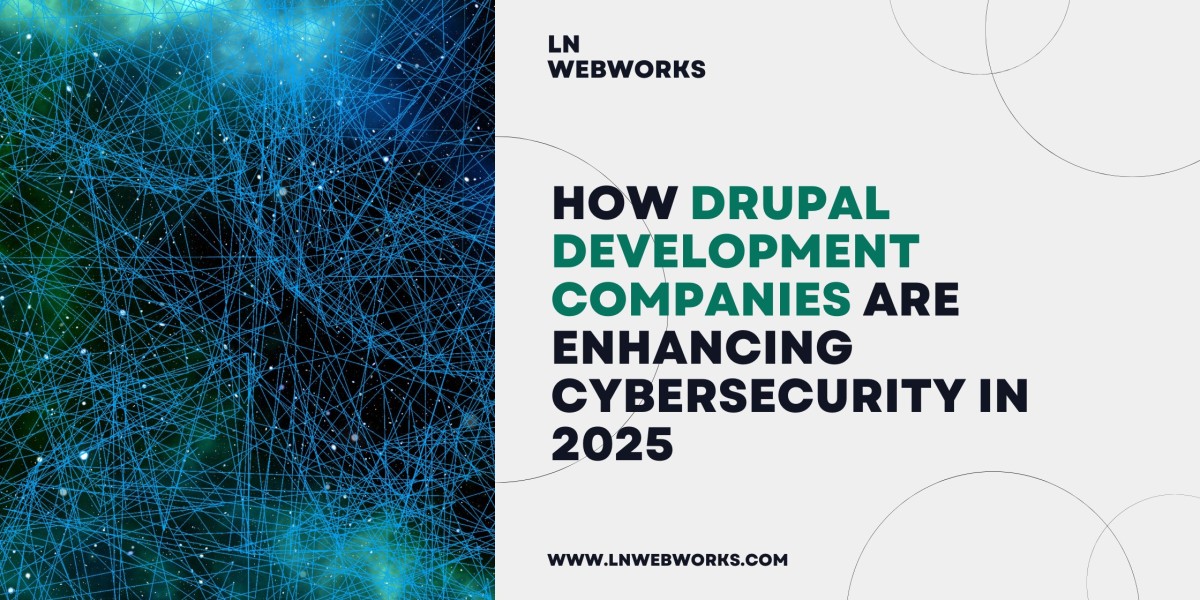In an era where cyber threats are growing more sophisticated, cybersecurity has become a critical priority for businesses worldwide. As companies continue to embrace digital transformation, securing web applications and user data is more important than ever. Drupal, an open-source CMS known for its flexibility and robust security framework, remains a top choice for organizations seeking a secure digital presence.
Drupal development companies are at the forefront of implementing advanced security strategies to protect websites from emerging threats in 2025. Here’s how they are making a difference:
1. Adopting AI-Powered Security Measures
Artificial intelligence (AI) and machine learning (ML) are playing a significant role in threat detection and mitigation. Drupal development companies are leveraging AI-driven security solutions to identify vulnerabilities, detect anomalies, and prevent cyberattacks in real-time. These technologies enhance automated security monitoring, reducing the risk of human error.
2. Implementing Zero Trust Architecture (ZTA)
Zero Trust is no longer an option—it’s a necessity. Drupal experts are integrating Zero Trust principles into their security models, ensuring that every access request is continuously verified before granting permissions. This approach significantly minimizes the risks associated with unauthorized access and insider threats.
3. Enhancing Data Encryption and Privacy Compliance
With stricter data protection regulations in place, such as GDPR and CCPA, Drupal development companies are prioritizing end-to-end encryption and compliance adherence. They are implementing strong encryption protocols for data transmission and storage while ensuring compliance with global cybersecurity standards.
4. Strengthening Authentication and Access Control
Multi-factor authentication (MFA) and biometric authentication are becoming standard security features in Drupal-based websites. Development teams are incorporating these security layers to add an extra level of protection, preventing unauthorized logins and identity theft.
5. Automating Security Patching and Updates
One of the most effective ways to prevent security breaches is to keep the software up to date. Drupal development companies are automating security patch management, ensuring that vulnerabilities are fixed promptly. This proactive approach eliminates common security loopholes and safeguards websites from known exploits.
6. Conducting Regular Security Audits and Penetration Testing
Security is not a one-time task but a continuous process. Leading Drupal firms are conducting routine security audits and penetration testing to identify weaknesses before they can be exploited. These assessments help businesses stay ahead of potential threats and reinforce their digital security.
7. Leveraging Secure Hosting and Cloud Solutions
Drupal websites are increasingly being hosted on secure, managed cloud environments that offer built-in cybersecurity features. Drupal development companies are advising clients on choosing secure hosting solutions that provide firewalls, intrusion detection systems (IDS), and distributed denial-of-service (DDoS) protection.
Conclusion
As cyber threats continue to evolve, Drupal development companies are stepping up their efforts to fortify web applications with cutting-edge security practices. From AI-driven threat detection to Zero Trust implementation and proactive patching, these companies are ensuring that businesses can operate in a secure digital environment.
If you’re looking for a trusted partner to build and secure your web presence, LN Web Works, a leading Drupal development company, is committed to delivering top-tier security solutions for your business.







